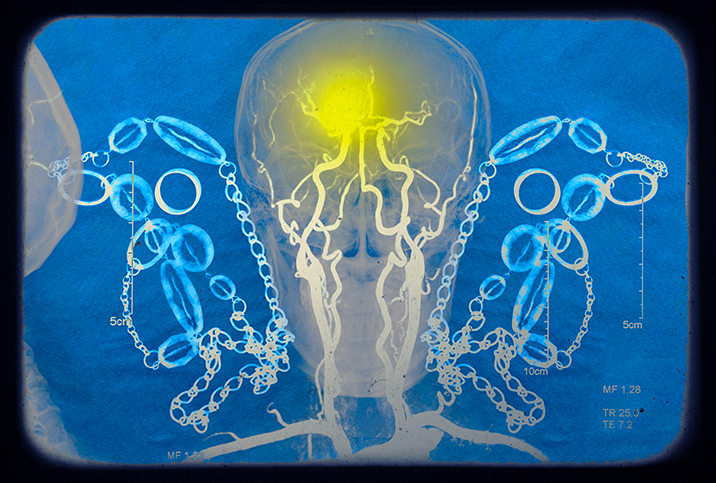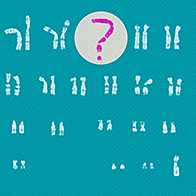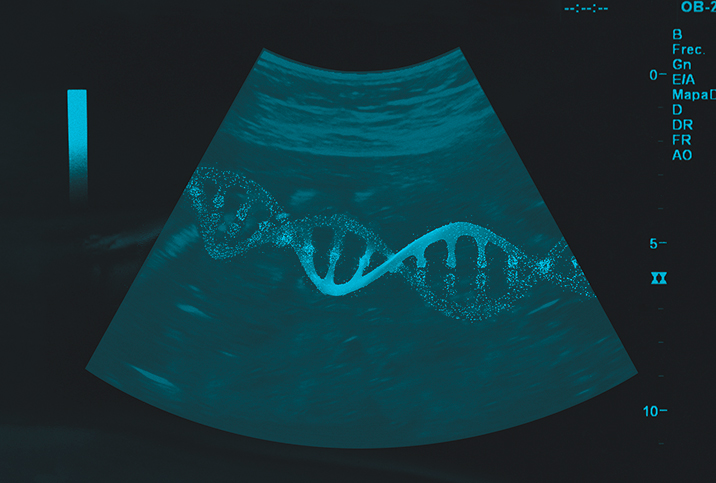What Is Huntington's Disease?

Think of the brain as the supercomputer of your body. Since the brain is involved in all of our bodily functions, any medical condition that affects the brain can have serious implications to quality of life and sexual health.
Huntington's disease, or Huntington's chorea, was first found in 1841 by American doctor Charles Oscar Waters, but it wasn't until 1872 that George Huntington, a physician in Dutchess County, New York, contributed a more detailed clinical description of the disease that bears his name.
In the 1980s and '90s, the Hereditary Disease Foundation spearheaded research into the genetic causes of Huntington's disease. Thanks to supporting organizations increasing awareness of the disease, more resources have been put into medications and treatments to slow its progression.
What exactly is Huntington's disease?
According to Cleveland Clinic, "Huntington's disease is a genetic disease that attacks the brain, causing unsteady and uncontrollable movements—chorea, from the Greek word for dance—in the hands, feet and face. It's also common to have changes in emotions and thinking, such as mood swings and memory problems."
The onset of Huntington's typically occurs from your 30s to 50s, and the disease worsens over the next 10 to 20 years. In some cases, it can begin in early childhood or later in seniors. Symptoms are not apparent early on, but as the disease progresses, they can include involuntary jerking or fidgety movements of the limbs and body, difficulty speaking clearly, increasingly rigid movements, mobility issues, breathing problems and personality changes.
"It's caused by a genetic mutation in a protein called huntingtin, which runs dominantly in families," said Leora Fox, Ph.D., assistant director of research and patient engagement at the Huntington's Disease Society of America in New York City. "Every child of a person with Huntington's disease has a 50/50 chance of inheriting it. It affects many aspects of a person's behavior and mental and physical health."
She said the disease is usually described as having a triad of symptoms: cognitive, psychiatric and motor, which means you experience a decline in memory, mood and movement.
Huntington's disease is relatively rare, with a prevalence of 5.7 cases in 100,000 people. About 15,000 people in the United States currently live with the condition and as many as 1,500 new cases are diagnosed each year.
'We sometimes say that Huntington's disease is like having Alzheimer's, Parkinson's and ALS at the same time.'
"Actual symptoms vary a lot from person to person, but early ones usually involve problems with planning and organization, depression and anxiety, and fidgety, involuntary movements called chorea," Fox explained.
These symptoms develop and worsen, and can be accompanied by personality changes, obsessive-compulsive disorder, suicidality, aggressive behaviors, apathy, difficulty walking, speaking and eventually swallowing, to the point where a person requires full-time care.
"We sometimes say that Huntington's disease is like having Alzheimer's, Parkinson's and ALS [amyotrophic lateral sclerosis] at the same time," Fox said.
People with Huntington's disease also experience physical changes. A common problem is cachexia, which causes extreme weight loss and muscle wasting. Huntington's patients can require thousands of calories daily to maintain weight, but eating can be difficult due to the worsening chorea and problems with swallowing. There can be problems with bowel control, bladder control and sexual function, too.
Most patients have a decreased life expectancy.
A diagnosis of Huntington's disease
To diagnose Huntington's, a neurologist does a physical exam, looking for twitches and jerks as well as problems with balance, reflexes and coordination. The doctor also asks about a family history of Huntington's disease. Confirmation of the diagnosis is done through a blood test, genetic testing, MRI and CT scans.
"I was diagnosed in January 2017 at 22 years old," said Ashley, a social worker in Pittsburgh who preferred not to use her last name. "Huntington's disease was new to my family as my mom was adopted. When I was tested, I really did not know the impact of the diagnosis. I received a referral from a local neurologist to go to a Quest Diagnostics testing site."
Ashley was unable to be tested immediately at that site, which added angst to her testing experience; she received her results after about a month.
"In that moment, I knew I was going to be positive with Huntington's," she said. "I went to the appointment and brought my fiancé and dad for support. We sat down in the office and the doctor said, 'I have your results and, unfortunately, they are positive.'"
Treatment for Huntington's disease requires a multidisciplinary approach because the disease affects patients physically, mentally and emotionally. Professionals in neurology, psychiatry, genetic counseling, physical therapy, occupational therapy, speech therapy and other specialized fields work together to design individualized treatment plans.
The chorea can be controlled with tetrabenazine (brand name Xenazine), deutetrabenazine (Austedo) and haloperidol (Haldol). Emotional symptoms can be managed with antidepressants, antipsychotics and mood-stabilizing drugs.
Living and loving with Huntington's disease
For someone diagnosed with Huntington's disease, challenges with sex range from decreasing intimacy due to having your partner actively care for you, to physical pain, hypersexuality and inappropriate behavior. Other symptoms, including anxiety, depression and erratic movements, can get in the way of wanting or enjoying sex.
Research published in 2015 indicated up to 85 percent of men and 75 percent of women with Huntington's experience sexual problems. A research paper published in 2020 identified the most common sexual issues as:
- Hypoactive sexual disorder for 53 percent to 83 percent of Huntington's patients
- Hyperactive sexual disorder for 6 percent to 30 percent
- Erectile dysfunction for 48 percent to 74 percent
- Ejaculatory dysfunctions for 30 percent to 65 percent
- Lubrication problems for 53 percent to 83 percent
- Orgasmic dysfunction for 35 percent to 78 percent
Damage to the caudate nucleus—a deep area of the brain that controls behavior—may cause a lack of inhibitions and an increased sex drive.
The social implications of having a neurodegenerative disease include feelings of isolation and loneliness, which can affect your sex life. If a partner takes on the role of caregiver for a person with Huntington's, that burden may impede sexual desire. Additionally, the inheritability of the disease can have a marked effect on sexual activity. The decreased life expectancy of patients may influence the dynamic of relationships, too.
For anyone diagnosed with Huntington's, it's important to remember that though the condition cannot be prevented, there are proactive strategies for seeking treatment and support. Managing the disease, especially in the early stages, requires regular exercise, a healthy diet and drinking plenty of water. The help of a support group can also prove beneficial.
"Right now, I would say I'm living in the pre-stages of Huntington's disease," Ashley said. "I am currently not symptomatic and am not receiving any treatment. I am 27, and usually, Huntington's affects people in their prime working years, mid-30s to early-40s."
Although Ashley presently reports no physical symptoms, she lives a daily life of anxiety and stress about her diagnosis.
"I worry every day about the life plan I need to follow," she explained. "I worry about my family with my diagnosis. I worry about when I forget something. Is that a part of Huntington's? Although I do not have physical symptoms, I live in constant stress of the 'what ifs' in my life. I also have a daughter who is at risk that I had prior to knowing anything about my own diagnosis."
Talk to family members if you suspect there may be cases of Huntington's disease lurking in your family tree. If you confirm a genetic possibility, ask your doctor about genetic testing and risk determination to ease anxiety of the unknown and help with a family plan. Organizations such as the Huntington's Disease Association and the Huntington's Disease Society of America offer online support.




















